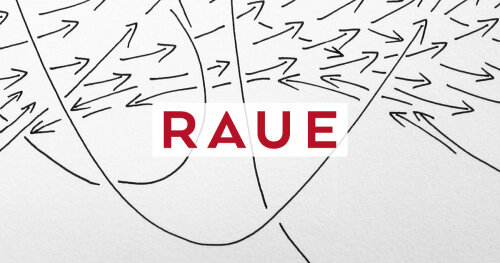Best Restructuring & Insolvency Lawyers in Berlin
Share your needs with us, get contacted by law firms.
Free. Takes 2 min.
List of the best lawyers in Berlin, Germany
About Restructuring & Insolvency Law in Berlin, Germany
Restructuring and insolvency law in Berlin, Germany is primarily governed by national legislation, mainly the German Insolvency Code (Insolvenzordnung, or InsO). The purpose of these laws is to provide fair and orderly procedures for businesses and individuals that are facing financial distress. The legal framework in Berlin ensures that the assets of insolvent individuals or companies are managed and distributed in a structured way among creditors while also supporting efforts to restructure and rescue viable businesses. This field is highly specialized, involving negotiation, legal compliance, and sometimes litigation, all within the framework set by federal and local authorities.
Why You May Need a Lawyer
Individuals and businesses in Berlin may require the assistance of a restructuring and insolvency lawyer for various reasons. You may need legal help when you are struggling with unmanageable debts, facing creditor actions, or if your company is struggling to meet its financial obligations. Legal expertise becomes crucial if you want to explore restructuring options to avoid insolvency, need advice on out-of-court settlements, or are considering entering formal insolvency proceedings. A lawyer can also help directors and managers navigate their duties and liabilities under German law, ensuring they do not inadvertently breach their legal obligations. For creditors, legal counsel is often necessary to protect their interests and participate effectively in insolvency proceedings.
Local Laws Overview
In Berlin, as throughout Germany, key aspects of restructuring and insolvency law are contained within the German Insolvency Code (InsO). This law regulates when and how insolvency proceedings can be opened, the roles and responsibilities of insolvency administrators, and the rights of creditors and debtors. Special procedures, such as protective shield proceedings (Schutzschirmverfahren), are available to companies seeking to restructure and avoid liquidation. Directors of companies must act promptly if insolvency is likely - failure to do so can lead to personal liability or even criminal charges. Additionally, local Berlin courts play a central role in supervising and administering insolvency cases, ensuring compliance with all procedural requirements.
Frequently Asked Questions
What is considered insolvency under German law?
Insolvency occurs when a debtor is unable to pay debts as they become due, or when their liabilities exceed their assets. For businesses, this can also include impending insolvency, where insolvency is likely to occur in the near future.
When must a company file for insolvency in Berlin?
A company’s management must file for insolvency without undue delay, no later than three weeks after becoming insolvent or over-indebted. Failure to comply with this duty can lead to personal liability and criminal penalties.
Can insolvency be avoided through restructuring?
Yes, structured negotiations or legal instruments such as protective shield proceedings can sometimes help a company reorganize its debts and operations, potentially avoiding formal insolvency proceedings. Legal advice is essential to navigate these complex options.
What is the role of the insolvency administrator?
An insolvency administrator is appointed by the court to manage the debtor’s assets, evaluate creditor claims, and oversee the proceedings. Their objective is to maximize returns for all creditors.
Are there differences between personal and corporate insolvency?
Yes, while both follow the Insolvency Code, procedures and outcomes may vary. Corporate insolvency often focuses on either restructuring or liquidation, whereas personal insolvency can lead to a discharge of debts after a period of good conduct.
What are the consequences for directors if they fail to act in time?
Directors who do not file for insolvency in a timely manner risk both civil and criminal liability. They may be held personally responsible for damages to creditors and could face prosecution.
How are creditors informed and involved in proceedings?
Creditors are notified by the insolvency court and invited to submit their claims. They attend creditors’ meetings and can influence decisions on the proceedings through voting rights according to the size of their claims.
Can insolvency affect existing contracts?
Yes, certain contracts may be terminated or amended by the insolvency administrator. Some obligations may be temporarily suspended to protect the interests of both creditors and the debtor.
How long do insolvency proceedings typically last?
The length of proceedings varies depending on the complexity of the case. Simple cases can be resolved in several months, but complex corporate insolvencies might take several years to conclude.
What options do I have if my claim is denied in insolvency proceedings?
You can contest the decision by appealing through the proper legal channels provided by the insolvency court. It is advisable to seek legal guidance to ensure your rights as a creditor are protected.
Additional Resources
If you are seeking more information or assistance with restructuring and insolvency matters in Berlin, the following resources may be helpful:
- The Local Insolvency Courts (Insolvenzgerichte) in Berlin - The Berlin Chamber of Industry and Commerce (Industrie- und Handelskammer Berlin) - The German Bar Association (Deutscher Anwaltverein) for attorney referrals - The Federal Ministry of Justice (Bundesministerium der Justiz) for up-to-date legal information - Debt counseling centers (Schuldnerberatungsstellen) in Berlin for personal insolvency support
Next Steps
If you believe you may need legal assistance with restructuring or insolvency in Berlin, the first step is to seek a qualified lawyer who specializes in this area of law. Prepare relevant financial documentation, including lists of assets, liabilities, contracts, and recent correspondence with creditors. Schedule a consultation to discuss your situation and legal options in detail. Keep in mind that acting quickly is crucial, especially for company directors, to avoid legal liabilities. Professional legal advice can help you determine the best course of action, protect your interests, and navigate the complex procedures involved in restructuring and insolvency.
Lawzana helps you find the best lawyers and law firms in Berlin through a curated and pre-screened list of qualified legal professionals. Our platform offers rankings and detailed profiles of attorneys and law firms, allowing you to compare based on practice areas, including Restructuring & Insolvency, experience, and client feedback.
Each profile includes a description of the firm's areas of practice, client reviews, team members and partners, year of establishment, spoken languages, office locations, contact information, social media presence, and any published articles or resources. Most firms on our platform speak English and are experienced in both local and international legal matters.
Get a quote from top-rated law firms in Berlin, Germany — quickly, securely, and without unnecessary hassle.
Disclaimer:
The information provided on this page is for general informational purposes only and does not constitute legal advice. While we strive to ensure the accuracy and relevance of the content, legal information may change over time, and interpretations of the law can vary. You should always consult with a qualified legal professional for advice specific to your situation.
We disclaim all liability for actions taken or not taken based on the content of this page. If you believe any information is incorrect or outdated, please contact us, and we will review and update it where appropriate.















